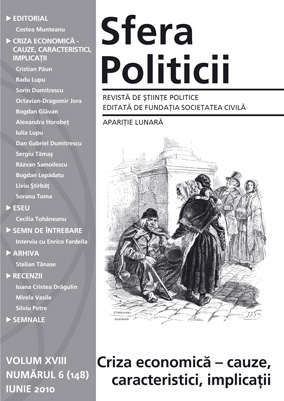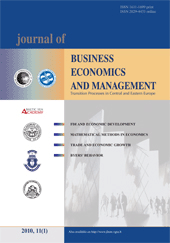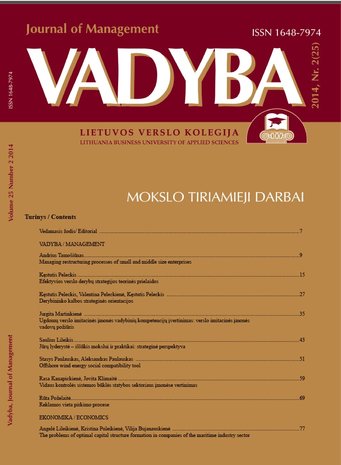REKLAMOS VIETA PIRKIMO PROCESE
Author(s): Rūta Poželaitė / Language(s): Lithuanian
/ Issue: 2/2014
Keywords: Advertising; advertising tools; buying process.
In the current business environment, the ongoing economic, political, technological, social changes are opening up new markets or close available one. Changes of the business environment make it to look for new opportunities to promote the buying process by means of advertising. There are quite deep analysis of advertising tools, their effectiveness and efficiency, application of the effect on consumer behaviour in scientific literature. But there is lack of a deeper analysis on changes of buying process in consequence of new technology emergence, how advertising acts in the buying process, what kind of advertising measures could be applied in to a particular stage of the buying process. Therefore, there is problematic question – what are the points of contact of the advertising and purchase process. The aim of the research is to determine the location of the advertising tools in the buying process. Two tasks were raised to achieve the aim: to define concept of advertising and buying process; and identify the points of contact of the advertising and purchase process. The use of the research methods – analysis of the scientific literature, secondary data analysis and comparison – helped to determine consumer behaviour changes in relation to advertising during the period of economic upturn, downturn and after recession, possible point of contact of the advertising and purchase process and possible means of advertising. Article contains the concept of advertising, it’s functions, tools, purchasing process. In the article is stated that advertising is a two-way networked enterprise communication with existing customers, potential customers of company, and also with the potential customers, who is not interested in the product at the moment, involving them in the communication about the company and its products diffusion. Also it was stated that buying process had transformed from five stages (need identification/problem awareness, information gathering, evaluation of alternative solutions (products), post-purchaes evaluation of decision) to ten and after to fifteen stages process (formation of unidentified user need by the means of advertising, need identification, problem awareness, information about product, that satisfies the need, gathering, evaluation of alternative solutions (products), selection of appropriate solution (product), information about seller gathering, seller rating, seller’s choice, visit to e-shop or traditional store, search for information about the product, the choice of product, purchase of product, post-purchase product evaluation: positive or negative rating, advocacy). Nine stages of buying process have points of contact with advertising means. The results of this article can be used in further empirical studies on the impact of advertising on consumer behaviour in the purchasing process.
More...



